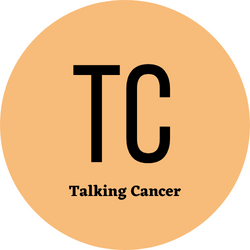Navigating the Landscape of Healthcare: A Holistic Approach
by siteadmin

In today’s fast-paced world, where information overload is the norm and technology evolves by the second, navigating the landscape of healthcare can feel like traversing a complex maze. With countless options, varying opinions, and constantly changing policies, it’s easy to feel overwhelmed. However, amidst the chaos, there’s a growing movement towards a more holistic approach to healthcare—one that prioritizes the well-being of individuals not just physically, but also mentally, emotionally, and socially.
The Evolving Definition of Healthcare:
Traditionally, healthcare has been narrowly defined as the diagnosis, treatment, and prevention of physical illnesses and diseases. While this aspect remains crucial, there’s a broadening recognition that true health encompasses more than just the absence of illness. It includes factors such as mental and emotional well-being, social connectedness, lifestyle choices, and environmental influences.
Empowering Individuals:
Central to this holistic approach is the empowerment of individuals to take charge of their health. Instead of viewing patients as passive recipients of care, healthcare providers are increasingly adopting a collaborative model, where patients are active participants in their own treatment plans. This shift fosters a sense of ownership and responsibility, empowering individuals to make informed decisions that align with their values and goals.
Preventive Care and Wellness:
Another cornerstone of holistic healthcare is the emphasis on preventive care and wellness. Rather than solely focusing on treating diseases after they occur, efforts are directed towards preventing them in the first place. This proactive approach involves promoting healthy lifestyle habits, regular screenings, vaccinations, and early intervention strategies. By addressing risk factors and promoting wellness, healthcare providers can help individuals maintain optimal health and prevent the onset of chronic conditions.
Integrative Medicine:
Integrative medicine is gaining traction as a complementary approach to conventional healthcare. It combines conventional medical treatments with evidence-based complementary therapies such as acupuncture, chiropractic care, herbal medicine, and mindfulness practices. By considering the whole person—body, mind, and spirit—integrative medicine seeks to address the root causes of illness and promote holistic healing.
Addressing Social Determinants of Health:
Recognizing that health outcomes are influenced by social, economic, and environmental factors, there’s a growing emphasis on addressing the social determinants of health. This involves tackling issues such as poverty, education, housing, access to nutritious food, and social support networks. By addressing these underlying determinants, healthcare providers can improve health equity and reduce disparities among diverse populations.
Harnessing Technology for Good:
Technology has the potential to revolutionize healthcare delivery, making it more accessible, efficient, and personalized. From telemedicine and remote monitoring to wearable devices and health apps, technology enables individuals to access care from the comfort of their homes, track their health metrics in real-time, and receive personalized recommendations based on their unique needs. However, it’s essential to ensure that technology remains a tool for enhancing human connection and care, rather than replacing it.
Building a Culture of Collaboration:
Ultimately, achieving holistic healthcare requires a collaborative effort from all stakeholders—healthcare providers, patients, policymakers, community organizations, and beyond. By working together towards a shared vision of health and well-being, we can create a healthcare system that is not only responsive to the needs of individuals but also promotes resilience, equity, and inclusivity.
In conclusion, navigating the landscape of healthcare requires embracing a holistic approach that recognizes the interconnectedness of physical, mental, emotional, and social well-being. By empowering individuals, promoting preventive care and wellness, integrating complementary therapies, addressing social determinants of health, harnessing technology responsibly, and fostering a culture of collaboration, we can pave the way towards a healthier, more equitable future for all.
In today’s fast-paced world, where information overload is the norm and technology evolves by the second, navigating the landscape of healthcare can feel like traversing a complex maze. With countless options, varying opinions, and constantly changing policies, it’s easy to feel overwhelmed. However, amidst the chaos, there’s a growing movement towards a more holistic approach…
Recent Posts
- A Stronger, More Comfortable, More Stable Walking Aid: Groundbreaking Features of the StrongArm Comfort Cane
- Sons of Monaco Painting Unveils the Ultimate Solution: Roll vs. Spray for Exterior Paint
- A Stronger, More Comfortable, More Stable Walking Aid: Groundbreaking Features of the StrongArm Comfort Cane
- Exploring Integrative Medicine and Alternative Therapies: Enhancing Health and Fitness Holistically
- Embracing Patient-Centered Care Models: Revolutionizing Health and Fitness
